Blueberry
-
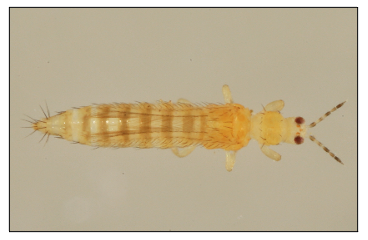
Ashfaq A. Sial1, James Jacobs2, Zack Williams3, and Will Brown41Department of Entomology, University of Georgia, Athens, GA 30602, 2University of Georgia Cooperative Extension, Pierce County, Blackshear, GA 31516, 3University of Georgia Cooperative Extension, Bacon County, Alma, GA 31510, 4University of Georgia Cooperative Extension, Appling County, Alma, GA 31510 Identification and Biology Flower thrips are chronic…
-
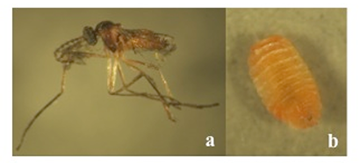
Ash Sial1, James Jacobs2, and Zack Williams31Department of Entomology, University of Georgia, 2UGA Extension, Pierce County, and 3UGA Extension, Bacon County Although blueberry gall midge has historically been referred to as a rabbiteye problem, recently it has been reported to be a concern in some southern highbush fields. The majority of the highbush infestations were primarily reported…
-
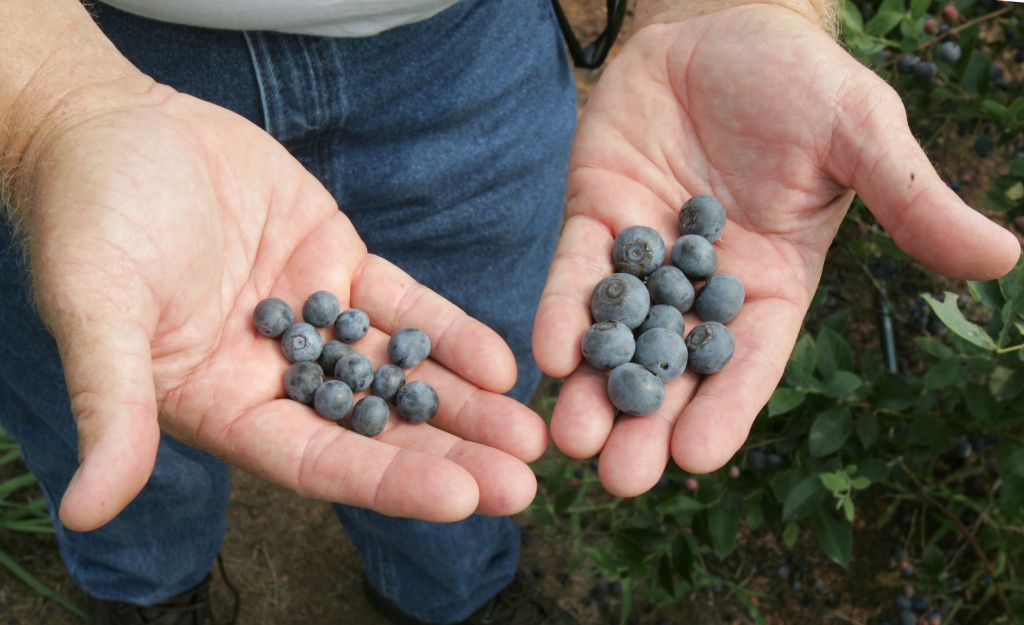
Interested in learning about integrated pest management options for blueberries? Need pesticide credits? Register for the Virtual Extension IPM Blueberry Field Day and join in next Tuesday, April 7th, 2020 from 10:00 am – 12:00 pm (EST). Register at: https://attendee.gotowebinar.com/register/1714103849236858380
-

Written By: Dr. Ash Sial, Entomologist, University of Georgia Blueberry bud mite, Acalitus vaccinii (Keifer) is a tiny eriophyid mite. If abundant, bud mites can abort flower buds producing symptoms that resemble cold injury or poor fruit set. Blueberry bud mites are roughly 125th inch long, white to translucent in color, and somewhat carrot-shaped, with…
-
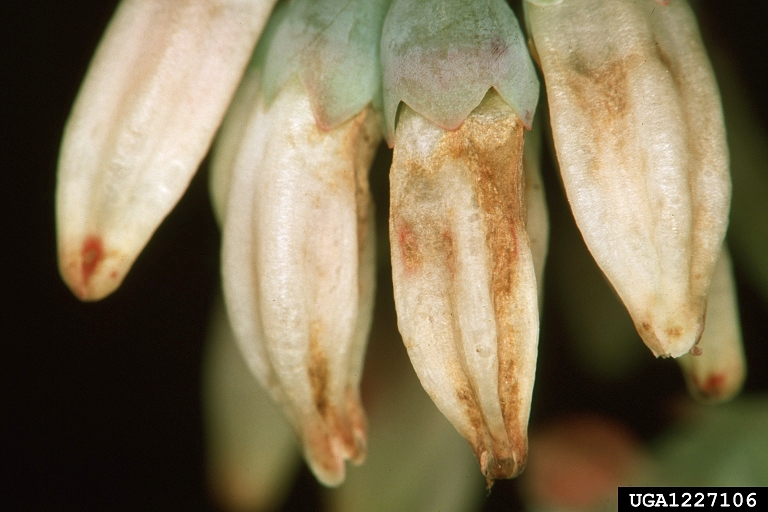
Dr. Ash Sial, Blueberry Entomologist and UGA IPM Program Coordinator Blueberry, blackberry, raspberry, and strawberry growers throughout the southeast region and nationally are invited to attend an upcoming stakeholder listening session where they will be asked to share their experiences, concerns and needs with researchers regarding thrips management in their small fruit production systems. The session will…
Posted in: biological control, Blueberry, chemical control, commercial, cultural control, insect pests, Monitoring -
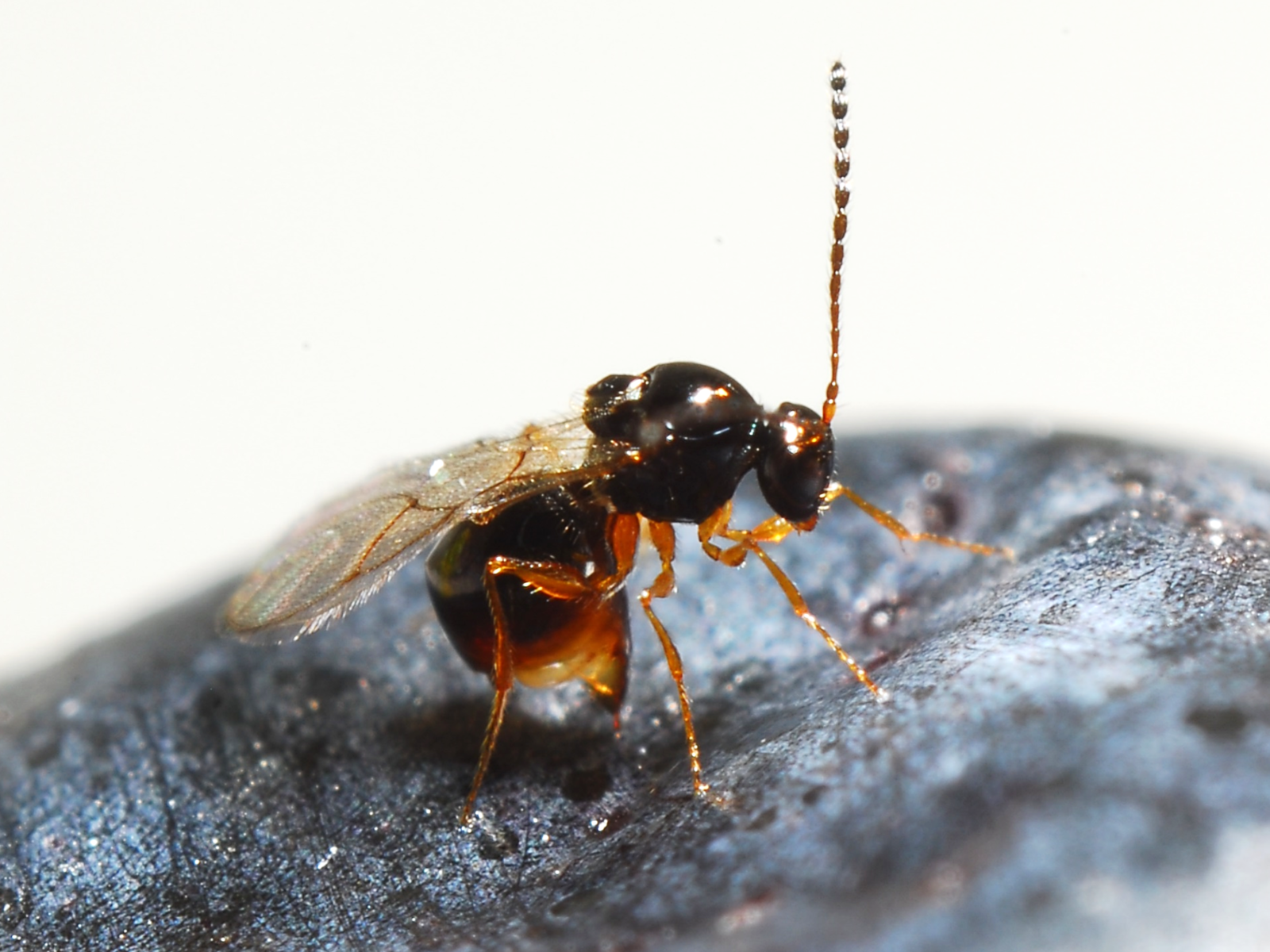
Written by: Emily Cabrera, UGA IPM Communications Coordinator Experts/Sources: Cera Jones, Small Fruit Entomology Lab Manager and Corinne Stouthamer, Research Scientist, University of Georgia In a quiet field of abandoned blueberries and shrubby brush in south Georgia, Cera Jones released hundreds of tiny parasitic wasps into the thicket and watched them fly away, following their natural instinct…
Posted in: beneficials, biological control, Blueberry, insect pests, invasive pest, organic, small fruits, strawberries -

Written By: Dr. Ash Sial, Department of Entomology, University of Georgia Scales are a large group of insects (superfamily Coccoidea) in order hemiptera that are minute to small in size and sexually dimorphic – males and females are distinctly different in appearance (Daly et al. 1998). They have unusual lifecycle; females have incomplete metamorphosis (egg-immatures-adult),…
-
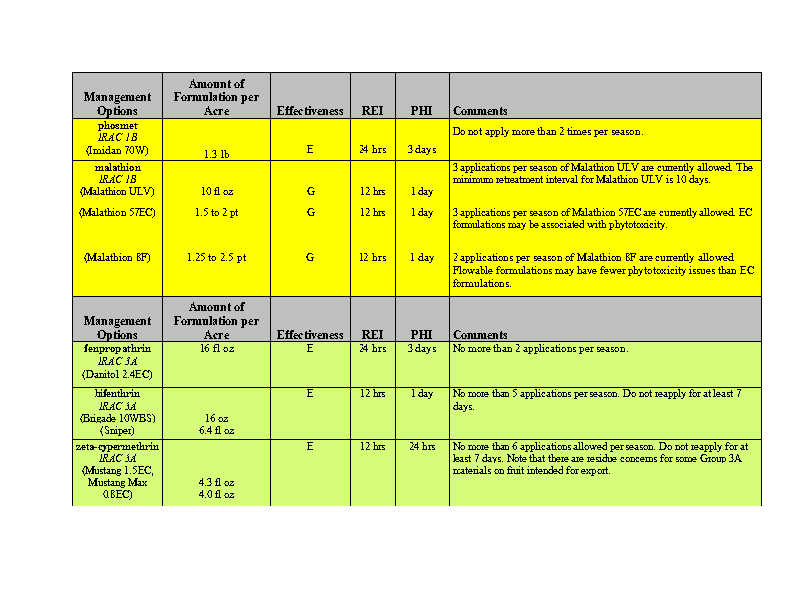
Written by: Ash Sial, Department of Entomology, University of Georgia Spotted-wing drosophila (SWD, Drosophila suzukii) is an invasive pest of soft skinned fruit in the United States and has been detected throughout the southeast. Infestations were observed in some blueberries. SWD damage is similar to blueberry maggot. Female flies lay their eggs in ripening and ripe…
-
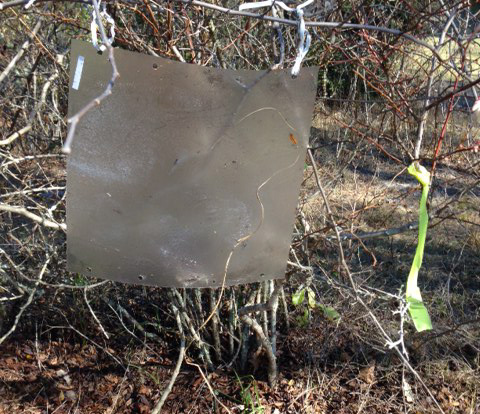
Ash Sial1, James Jacobs2, Zack Williams3, and Renee Allen31Department of Entomology, University of Georgia, 2UGA Extension, Pierce County, and 3UGA Extension, Bacon County Although blueberry gall midge has historically been referred to as a rabbiteye problem, recently it has been reported to be a concern in some southern highbush fields. The majority of the highbush…
-
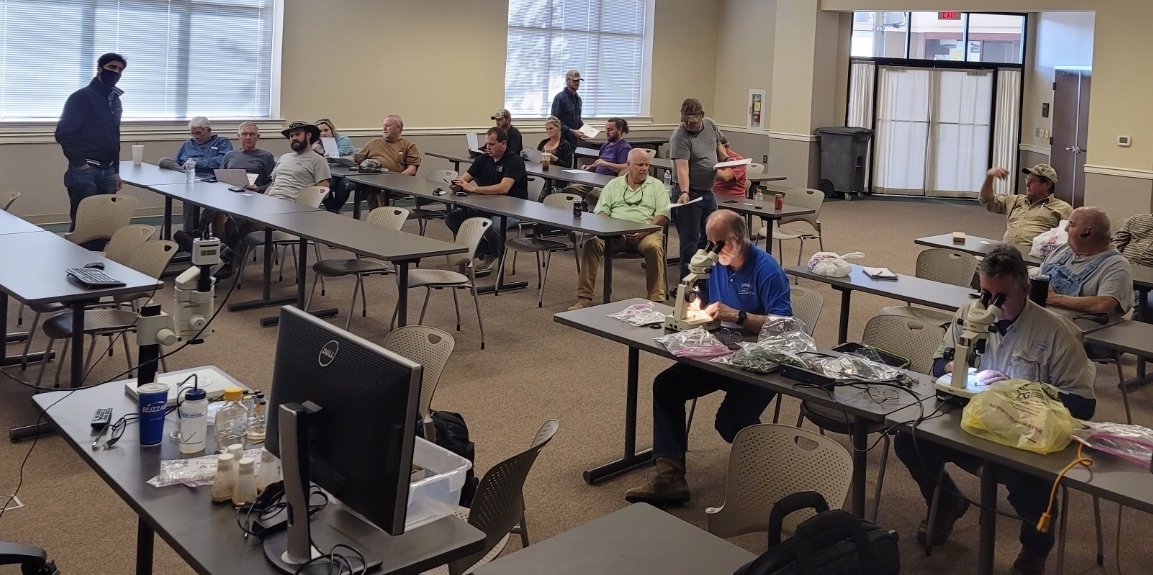
Written by: Emily Cabrera, IPM Communications Coordinator Expert/Source: Ash Sial, Blueberry Entomologist Blueberry growers got up close and personal last week at a special blueberry insect IPM learning session in Alma, Georgia. Over the past few years, a range of blueberry insects have battered the industry in the southeast, so learning to recognize pests at…